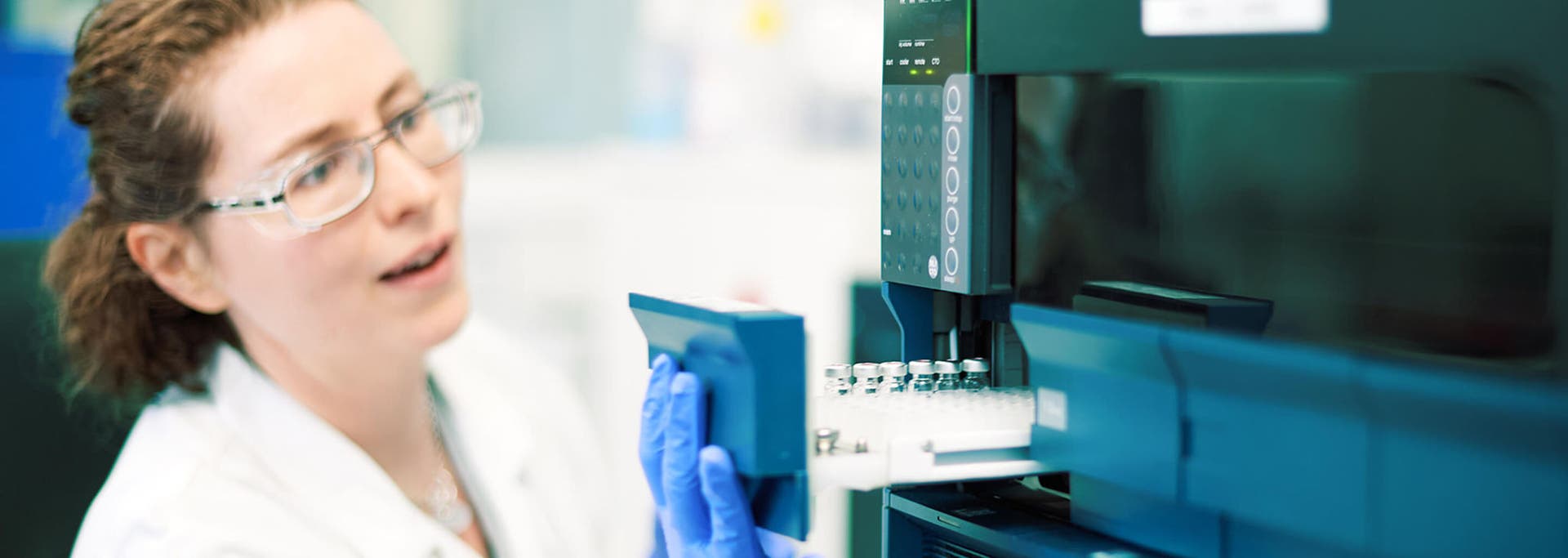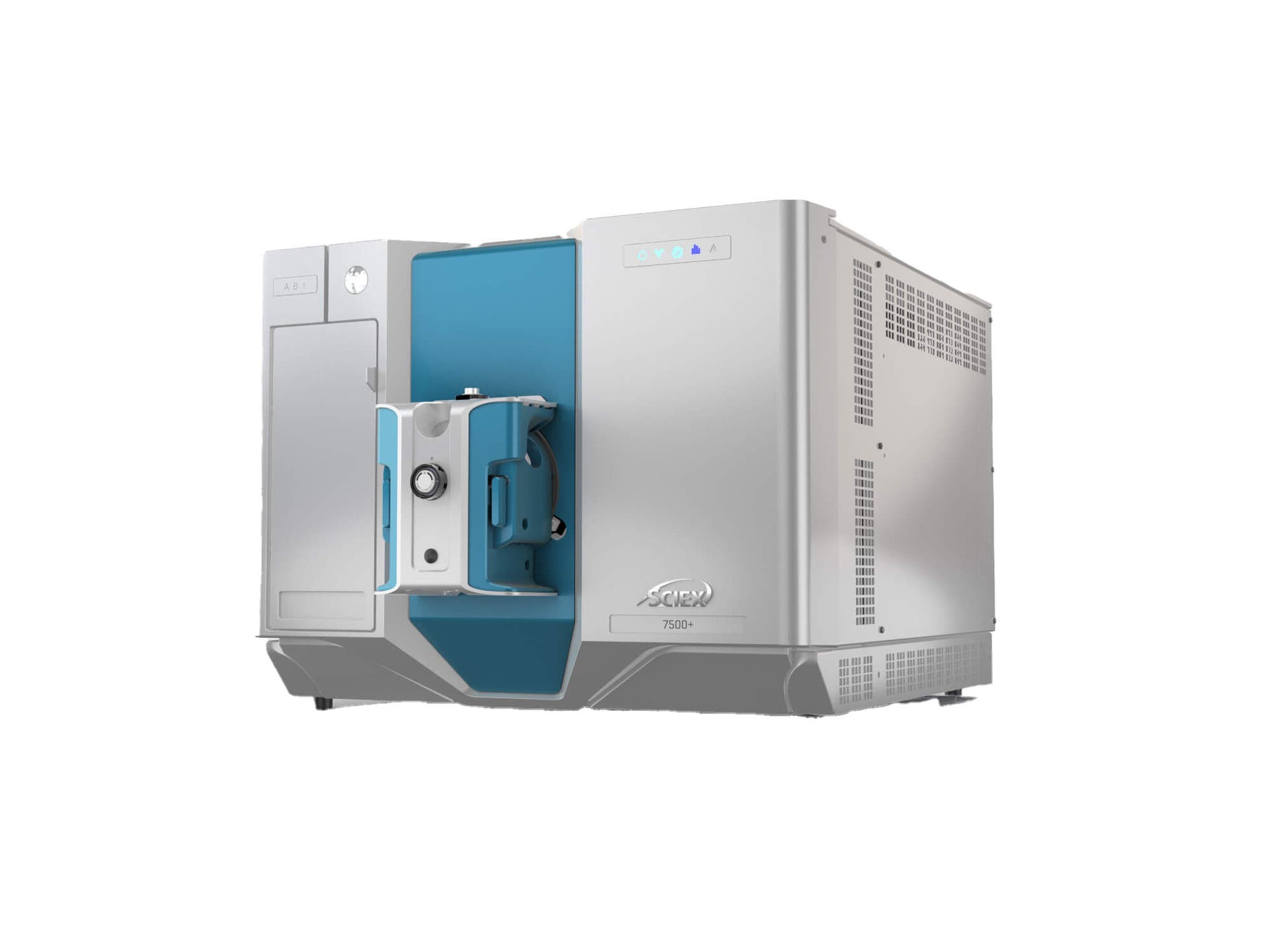Measuring low levels of per- and polyfluoroalkyl substances (PFAS) in food is particularly challenging. Our scientific experts work diligently with authorities and customers to help ensure that your PFAS testing is successful regardless of the matrix.
Testing food for PFAS

Explore the latest and trending topics
-
Webinar
PFAS summit Part II: Food and environmental testing
In this series of webinars, internationally recognized experts share their experience with PFAS testing in food and food contact materials (FCMs) and monitoring human exposure via consumables.
-
Webinar
An LC-MS/MS method for analyzing PFAS in food at the ng/kg level
Learn about the analytical approach and regulatory criteria used at the Nestlé Research Center in Lausanne, Switzerland, to develop and validate a method for PFAS testing in food.
Leading the way in PFAS food testing
Unrivaled robustness in new matrices
The demand for PFAS testing in food continues to grow as toxicologists across the globe become increasingly concerned about their impact on human health. While exposure to PFAS does not cause an immediate reaction, bioaccumulation of low amounts of PFAS over a long period of time can have harmful effects. For this reason, regulatory detection limit requirements are set very low across the globe. SCIEX high end triple quadrupole systems, such as the SCIEX 7500+ system and the SCIEX 6500+ system are designed to cope with the most challenging matrices such as food. while achieving ultra-low sensitivity. In particular, the new SCIEX 7500+ system shows exceptional levels of robustness in challenging matrices thanks to Mass Guard technology. This innovative technology reduces the risk and frequency of instrument contamination by novel ion filtering prior to mass separation. The removable DJet+ assembly allows users to clean and maintain it themselves, taking control of front-end cleaning schedules.
Measuring low levels of PFAS is challenging. We know that because for decades, our experts have been at the forefront of PFAS testing and are still deeply connected with the scientific community across the world, from the US to Europe to China. SCIEX is constantly seeking to support customers with systems, sample preparations and methods for new matrices and ready to share that global knowledge with its customers.
With SCIEX, you don't just buy the system - you get the deep expertise you need to succeed. #PFASCIEX
Featured resources for PFAS and food testing
-
Technical note
Achieving exceptional robustness for PFAS analysis in food with the next-generation SCIEX 7500+ system
This technical note demonstrates >2x robustness improvement for the analysis of PFAS food extracts on the SCIEX 7500+ system.
-
Technical note
Leveraging high-resolution mass spectrometry (HRMS) for resolving PFAS interferences and quantitation in food matrices
This technical note describes an LC-HRMS method for the simultaneous quantitation and identification of PFAS in food using the ZenoTOF 7600 system.
Meeting regulatory requirements for PFAS in food
Method for protein-rich foods and coffee
As regulations that require testing food for PFAS continue to go into effect worldwide to mitigate human health risks, laboratories are faced with the task of detecting these chemicals at very low levels in an array of challenging matrices. To meet these requirements, scientists need robust, proven methods and ultra-sensitive instruments to support them. For example, to comply with EU and US regulations, scientists at the Nestlé Research Center in Lausanne, Switzerland, used a highly sensitive LC-MS/MS system to develop and validate a method for analyzing PFAS in a diverse range of food matrices. The analytes quantified included includes compounds listed in both the Commission Recommendation EU 2022/1431 and, the U.S. Food and Drug Administration method for PFAS analysis in processed food. Several compounds were also included that were surveyed by service laboratories in Europe and mentioned in literature. The Commission Regulation EU 2022/2388 was followed to ensure that enforced limits were met for the relevant PFAS compounds mentioned.
- 57 per- and polyfluoroalkyl substances (PFAS)
- The limit of quantitation (LOQ) levels met the Commission Regulation EU 2022/2388 for the 4 regulated PFAS compounds, including: PFOS, PFOA, PFNA and PFHxS.
- Multiple food matrices were tested including baby food puree (beef), milk-based infant formula, full cream milk powder, fish, whole egg, soluble coffee and fish oil.
- LOQs in food matrices analysed were as low as 0.01 µg/kg.
PFAS in food workflow
Suited for:
- Trace-level quantitation
- Robustness you can count on
- Intuitive software
Setting a new standard for instrument resilience and robustness, the SCIEX 7500+ system gives you the confidence to face evolving analytical challenges. Tackle tight timelines with exceptional sensitivity and with the power to control your instrument downtime.
Unleash the analytical power of the next-generation software platform for data acquisition and processing.
All resources
-
Technical note
Measuring PFAS in a variety of food samples at different price points
This study explored the differences in PFAS concentrations in several food types at different price points.
-
Technical note
Quantitation of per- and polyfluoroalkyl substances (PFAS) in foodstuffs
This technical note describes a simple and sensitive method using the SCIEX 7500 system for the quantitation of per- and polyfluoroalkyl substances (PFAS) in different foodstuffs.
-
Technical note
Leveraging high-resolution mass spectrometry (HRMS) for resolving PFAS interferences and quantitation in food matrices
This technical note describes an LC-HRMS method for the simultaneous quantitation and identification of PFAS in food using the ZenoTOF 7600 system.
